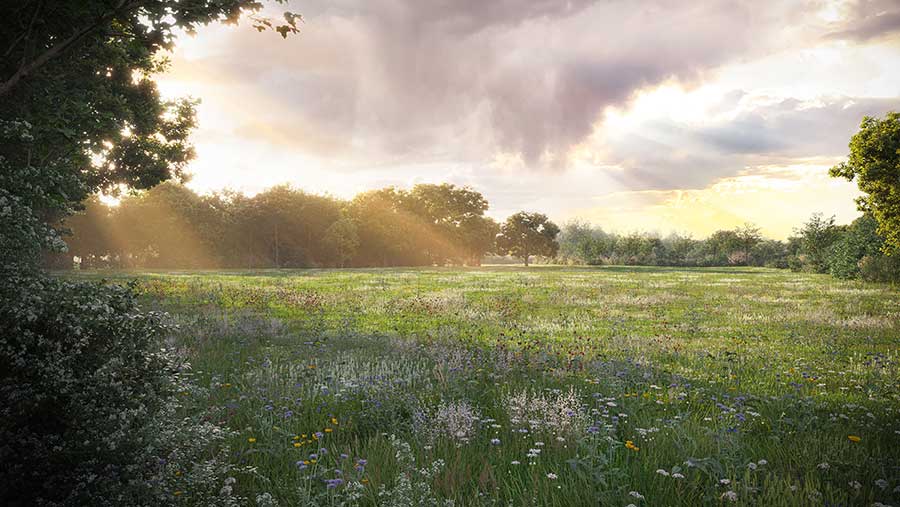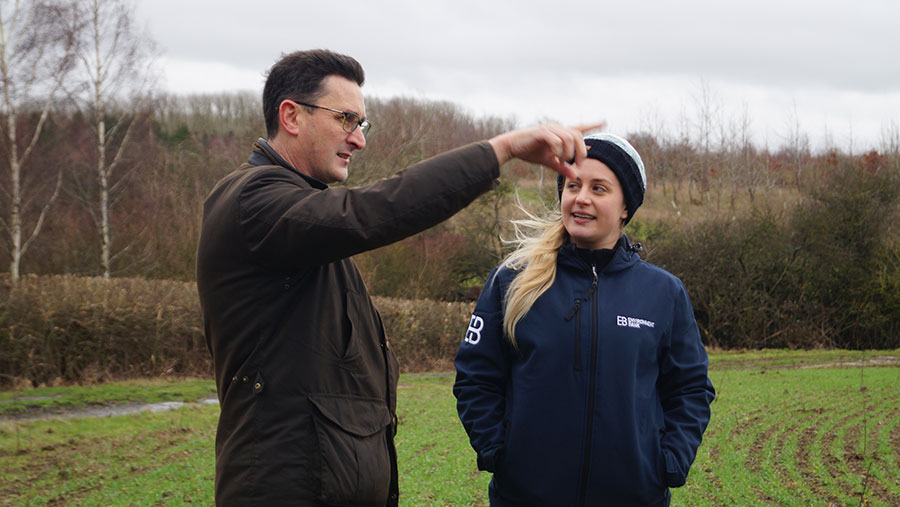Advertiser content
Habitat Bank enquiries higher than ever as BNG comes into effect
Environment Bank is one of England’s leading third-party biodiversity net gain (BNG) providers, with a growing national network of Habitat Banks.
Landowners partnering with them can use their low-yielding land to diversify their income streams, enhance their natural landscapes, and build business resilience.
Environment Bank has a unique funding model which allows them to secure thirty years of land lease payments, capital works, and associated legal and administrative costs upfront – giving landowners the confidence that their income is secure from day one.
And that’s in addition to annual uplifts, windfall revenue share options, and numerous benefits resulting from sustainable farming infrastructure enhancements and upgrades.
Unlike other providers, Environment Bank don’t need to secure a buyer for their Biodiversity Units before they can begin paying their landowners.
They take full responsibility for habitat delivery, monitoring, and reporting – so the income stream they offer is delinked from downside market risk, sales complexities, or delays.
Landowners partnering with Environment Bank can typically earn an additional annual income of between £20,000-£60,000, with this income guaranteed for thirty years.
To ensure land use remains primarily agricultural throughout, they establish agricultural Habitat Banks – designing sites to integrate with landowners’ existing businesses.
This means that their solution works well alongside existing land uses and income streams.

Visualisation of the farm once the Habitat Bank is established © Environment Bank
What is biodiversity net gain?
To comply with the Environment Act 2021, developers in England must deliver 10% biodiversity net gain (BNG) to secure planning permission. They can do so by purchasing Biodiversity Units from Habitat Banks created off-site.
Landowners can secure a reliable source of additional income by establishing BNG Habitat Banks and generating these Biodiversity Units on their land.
Creating habitats and generating Biodiversity Units independently can be a complex and costly undertaking requiring industry expertise, so landowners should be mindful of exposing themselves to risk and creating a stranded asset in the process.
But BNG’s complexity shouldn’t make it inaccessible, so Environment Bank is partnering with landowners to ensure they get the best deal overall.
They have already begun to help safeguard farming businesses and enhancing landscapes for future generations.
Case study
Landowner, Joseph Soul, has been working with Environment Bank since 2020 to diversify his income and create high-quality habitats for his working farm and family-run campsite near Milton Keynes.

Landowner Joseph Soul and associate ecologist Sophie Moy © Environment Bank
“I was interested in BNG, so I investigated securing Units and launching them on the market myself.
“However, I chose to work with Environment Bank – it’s a process that needs to be overseen by a team of ecologists to deliver the best results for nature and my business.
“The benefits reaped from protecting nature are abundant, but a partnership with Environment Bank allows us to guarantee an income for the next 30 years.
“My Habitat Bank has the potential to attract native species, including nightingale, garden warbler, and turtle dove.
“From a financial point of view, our campsite is sure to attract more customers if the surrounding land is more biologically diverse.
“My work with Environment Bank feels like a joint effort. I have received no shortage of support.
“It also feels great to know you’re doing your bit to combat the biodiversity crisis we’re currently facing in the UK, and therefore working against climate change.”
Interested in diversifying your income through BNG?
With over 6,500 acres of habitat creation underway, Environment Bank is transforming landscapes nationwide.
They have over 50 Habitat Banks in development and are looking to source further sites in key areas experiencing significant demand for high-integrity Biodiversity Units.
Their land managers provide structured support throughout, and they’ve created a streamlined onboarding process to make things as simple as possible for landowners to get started.
Provided by
Environment Bank is leasing parcels of land to create biodiverse habitats that will play a key role in restoring ecosystems while also providing a secure, long-term income for farmers and landowners though Biodiversity Net Gain (BNG).
